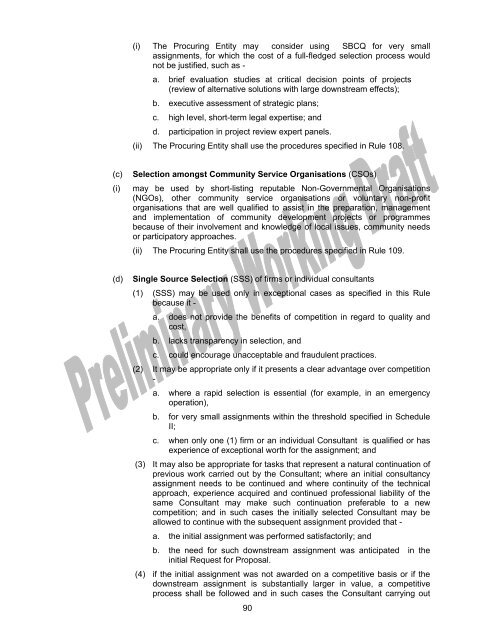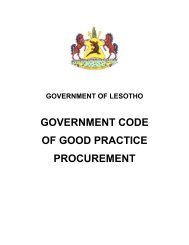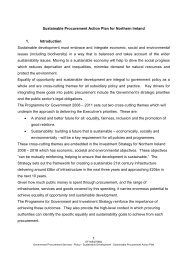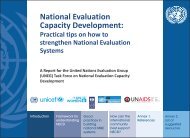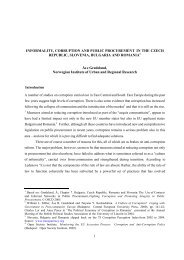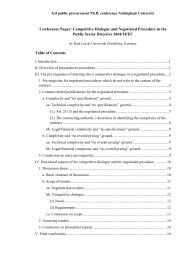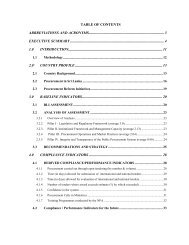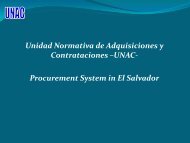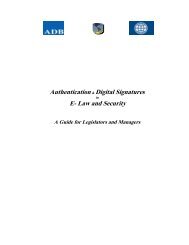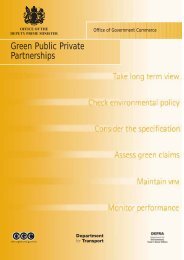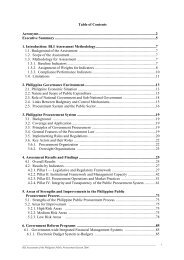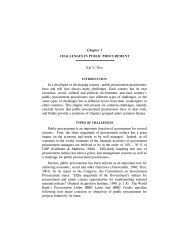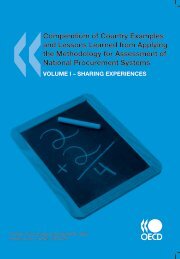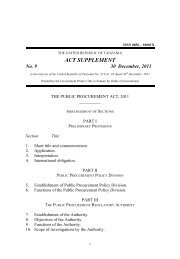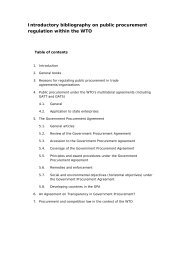The Public Procurement Rules 2008 - LGED
The Public Procurement Rules 2008 - LGED
The Public Procurement Rules 2008 - LGED
You also want an ePaper? Increase the reach of your titles
YUMPU automatically turns print PDFs into web optimized ePapers that Google loves.
(i) <strong>The</strong> Procuring Entity may consider using SBCQ for very small<br />
assignments, for which the cost of a full-fledged selection process would<br />
not be justified, such as -<br />
a. brief evaluation studies at critical decision points of projects<br />
(review of alternative solutions with large downstream effects);<br />
b. executive assessment of strategic plans;<br />
c. high level, short-term legal expertise; and<br />
d. participation in project review expert panels.<br />
(ii) <strong>The</strong> Procuring Entity shall use the procedures specified in Rule 108.<br />
(c)<br />
(i)<br />
Selection amongst Community Service Organisations (CSOs)<br />
may be used by short-listing reputable Non-Governmental Organisations<br />
(NGOs), other community service organisations or voluntary non-profit<br />
organisations that are well qualified to assist in the preparation, management<br />
and implementation of community development projects or programmes<br />
because of their involvement and knowledge of local issues, community needs<br />
or participatory approaches.<br />
(ii) <strong>The</strong> Procuring Entity shall use the procedures specified in Rule 109.<br />
(d)<br />
Single Source Selection (SSS) of firms or individual consultants<br />
(1) (SSS) may be used only in exceptional cases as specified in this Rule<br />
because it -<br />
a. does not provide the benefits of competition in regard to quality and<br />
cost,<br />
b. lacks transparency in selection, and<br />
c. could encourage unacceptable and fraudulent practices.<br />
(2) It may be appropriate only if it presents a clear advantage over competition<br />
-<br />
a. where a rapid selection is essential (for example, in an emergency<br />
operation),<br />
b. for very small assignments within the threshold specified in Schedule<br />
II;<br />
c. when only one (1) firm or an individual Consultant is qualified or has<br />
experience of exceptional worth for the assignment; and<br />
(3) It may also be appropriate for tasks that represent a natural continuation of<br />
previous work carried out by the Consultant; where an initial consultancy<br />
assignment needs to be continued and where continuity of the technical<br />
approach, experience acquired and continued professional liability of the<br />
same Consultant may make such continuation preferable to a new<br />
competition; and in such cases the initially selected Consultant may be<br />
allowed to continue with the subsequent assignment provided that -<br />
a. the initial assignment was performed satisfactorily; and<br />
b. the need for such downstream assignment was anticipated in the<br />
initial Request for Proposal.<br />
(4) if the initial assignment was not awarded on a competitive basis or if the<br />
downstream assignment is substantially larger in value, a competitive<br />
process shall be followed and in such cases the Consultant carrying out<br />
90


